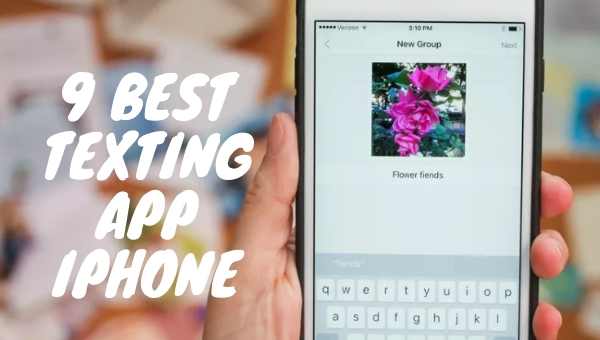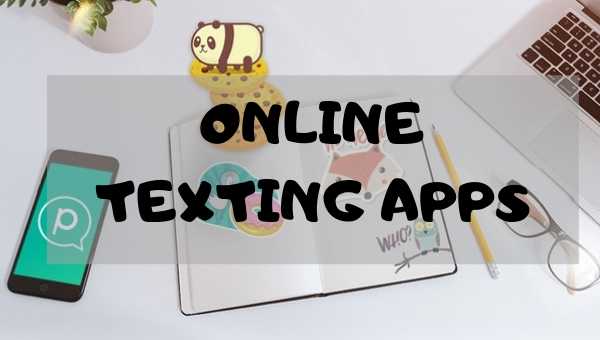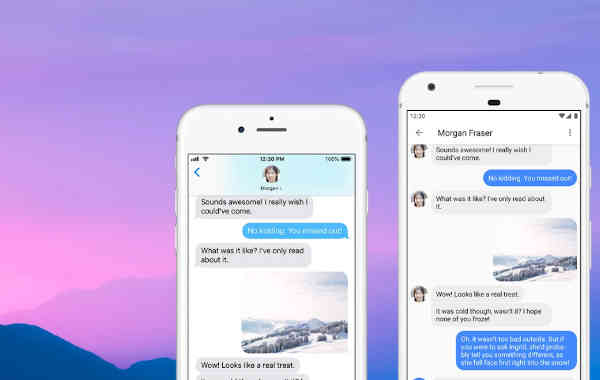We are going to guide you about Best Texting App iPhone/IOS Group-Texting With Different Private Numbers. which is very helpful for you.
Contents
List of Top 9 Best Texting App iPhone Latest Free To Use
There’s nothing incorrect with your standard best iPhone texting app. It’s secure, convenient, and even affordable. However, it is not the most suitable option available.
In current years, a stream of third-party messaging apps has encouraged people to think beyond iMessage. While these services started small, the management has grown considerably since then.
The most famous messaging services in the information can boast over a billion users. There’s currently part of a rat race at the moment to see who can claim the biggest user base.
Why is everyone attempting third-party messaging apps? Well, some people like their broad range of features. These services enable people to do more with messages than just exchange text.
They support custom videos, gifs, and other entertaining features that experience users explore. Others like the security they allow. At a time when privacy comes as a reward, these services try to promise protection against spying eyes. Of course, some people just like not having to spend to use them.
It doesn’t mean why you choose to use a messaging app. What matters is that you try one in a series to see how much more you could be getting out of your communications.
To support you out, we took a look at some of the most famous best texting app iPhone out there to find the one that is right for you and maybe the perfect best of them all.
1. WhatsApp
Pros:
+ Arguably the most common messaging service in the world
+ Very reliable communications
+ Still packed with “silly” features
Cons:
– Not an excellent option for businesses
– Late to update
In 2014, Facebook bought WhatsApp for around $16 billion. The progress came as a shock to many who had never listened to the service before. However, the fact is that WhatsApp was previously being used by hundreds of millions of people across the world.
WhatsApp enables you to drop your text messaging program if you’d like to. It’s credited with many service providers allowing unlimited text messaging in the first place. Still, WhatsApp allows endless international texts, cheap calling options, and quite several fun features.
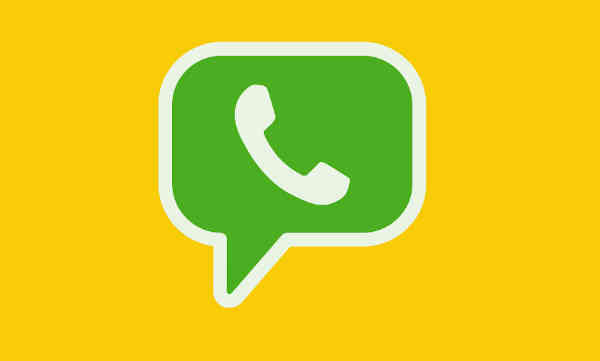
On top of all that, WhatsApp doesn’t want you to create a separate account but will always keep track of your messages and information. Thankfully, it doesn’t receive that information from any external parties. Its voice messaging options and desktop support features are also the head of the class.
WhatsApp is not going to be displacing Slack anytime soon as an option for businesses, but it is an excellent personal messaging option. Even if it could reach some more regular updates, WhatsApp is still the most reliable overall messaging service.
The most enjoyable part of all of these best texting apps for iPhone/Android is that they are completely free. That means you shouldn’t -wait to give them a shot. After all, the only item you have to spend is a text app that you might not actually like as much as you remember.
Have you got the perfect messaging service for you? Remember about a service that most people don’t? Be positive to share your knowledge with us in the remarks below.
2. Signal App
Pros:
+ Maybe the most reliable messaging service
+ Crystal pure calls
+ Uses the current contact information
Cons:
– Requiring in-group chat features
– Not a very ostentatious service
– File sharing options are not great in class
In an age of grown worry over the privacy of your communications, it’s obvious that you may look for a messaging service that allows a little rest of your mind.
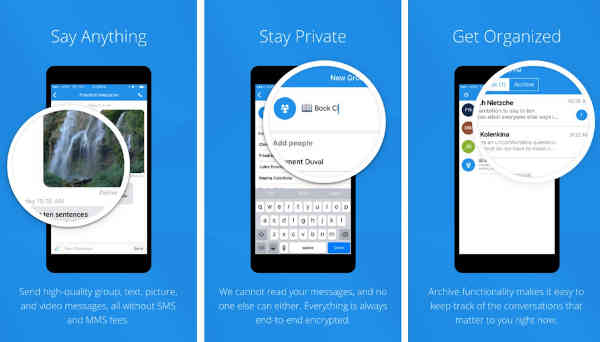
Signal has lots of peace of mind to give. The service efficiently made its name off its state of performance end-to-end encryption options. Full technical analysis aside, that means Signal does it very difficult to track the contents or context of your communications.
That’s excellent, but what’s even more useful is the fact that Signal can simply replace your built-in messaging service. It uses your current contacts and doesn’t require any more information.
The only difficulty there is that you should assume Signal to give many more features than the ones you take with iMessage. That makes it a pretty boring option, but it’s an upgrade in service quality you can make instantly with almost no troubles.
3. Telegram Messenger App
Pros:
+ Amazingly simple to use
+ Excellent person-to-person messaging choices
+ Provides for large file transfers
Cons:
– Its safety has been called into question
– A little lacking in specific group chat features
– A bit too regular
Telegram made titles not too long ago when it was announced that the service’s data security features might not be up to par. Along with general security companies, some thought that Telegram was already selling necessary user data.
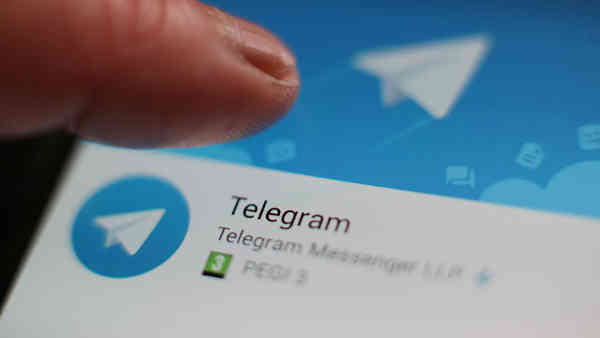
The legality of these charges has been called into question, but you should understand that these concerns continue.
It must be said that Telegram has reportedly updated its privacy protection services since those declarations broke. That’s genuine news because the rest of the app’s services are top-notch. Telegram is an especially user-friendly messaging service that provides convenient features such as the capacity to share large files and endless storage space.
Telegram is very better than iOS’ built-in messaging service. Aside from safety, its biggest disadvantage is its comparative lack of “fun” features such as a kind of text sticker options and increased gif support.
4. Facebook Messenger App
Pros:
+Largest user support of any mobile messenger service
+ Facebook combination features
+ Free Wi-Fi calls
Cons:
– The mobile app is lazy to update
– Secondary multi-channel support
– Mysterious interface decisions
Facebook Messenger is one of the most famous apps in the world. It’s simple to understand why that is. Millions and millions of people previously use Facebook, so it’s only logical that they’ll use the built-in messaging service.
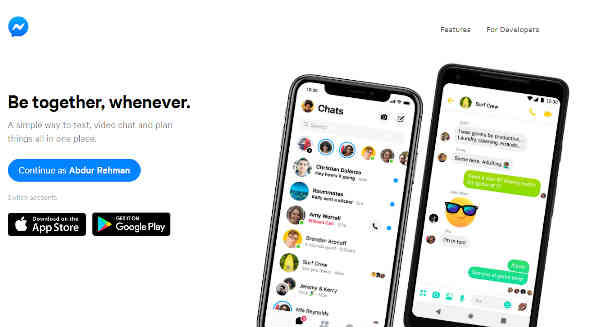
Much like Google Hangouts, Facebook Messenger’s greatest selling point is the case that you’re probably already using Facebook and have lots of contacts with that service. It just makes a reason to message or call them on Facebook.
Fortunately, this app gets it pretty simple to do that with free call and text options. It even sports the typical array of photo, gif, and messaging filter characteristics.
Facebook Messenger starts to come apart when you consider its competition. For instance, Facebook Messenger doesn’t allow the multi-channel support that something like Slack does. It’s also surprisingly difficult to establish your contacts into groups.
Of course, the source of these problems may be how slowly Facebook Messenger gets updates. It appears that Facebook is pretty happy with the app’s absurdly large user base.
If you can handle to convince your friends to sign-up for another service, it is well-deserving your time to do so.
5. Best Slack App
Pros:
+ Fantastic for workplace chat
+ Surprisingly entertaining features
+ Developed for group chats
Cons:
– Originally intended for businesses
– Experiences from lack of location services
– Video calling isn’t the most reliable
Any agents who have relied on an official messaging service in the last several years probably understand about Slack. It’s become the go-to reference for inter-office communication.
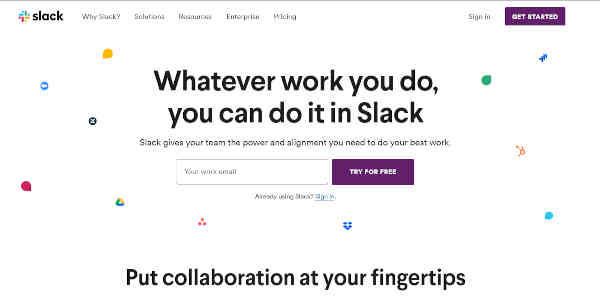
Quite honestly, it’s not difficult to see why. Slack was invented to accommodate big groups of people. Its multi-channel system gives it simple to divide a large user base into sub-sections. This supports ensuring that you can control who is “in the loop” rather comfortably.
In current years, Slack has included more “fun” features. For instance, users can add GIPHY to Slack and type in a number of companies that generate random moving Gifs. Naturally, it also supports a broad range of emojis.
The difficulty is that slack isn’t the much person-to-person messaging service out there. It works great with a large user base. Its mobile interface also drops a lot to be desired. All the features are there, but they’re not as simple to access as they are via the Slack desktop app.
This is especially notable with the service’s video call functionality which seems embarrassing to use on the phone. Slack is still excellent for businesses, but groups of friends should look outside.
6. Line App
Pros:
+ Free calls among users
+ Built-in common network
+ Simple to use and growing in demand
Cons:
– Doesn’t help video calling
– Wanting encryption features
– Not excellent for business conversations
The line is a different app that’s particularly popular in Asian countries. Some policies in that region regarding the features of phone plans and worldwide conversations make third-party messaging apps unusually popular.
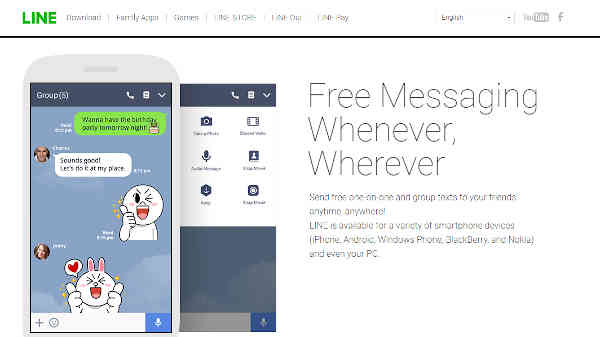
It’s not all about comfort, though. Along with the normal niceties like text message stickers, Line allows expanded features like a built-in user-to-user installment system. It even adds a custom social network that provides for increased communication among users.
The difficulty with Line is that it’s somewhat limited in connection to its competition. Its lack of a real video call service is its most obvious weakness, but it’s also a little frustrating that Line is originally designed to work among users. That means that out-of-service communications may be subjected to charges.
The line is going to remain especially popular in certain regions, but it does drag behind in several areas that might mean the most to you.
7. Google Hangouts App
Pros:
+ Syncs well with your current Google accounts.
+ Simple to use
+ Great Google Maps combination
Cons:
– Iffy mobile interface
– Barebones features related to other services
– Not very pleasant to use
Google Hangouts has increased considerably in the last several years. What started as Google’s simple Gmail messaging program has developed into something distant and more ambitious. Recent updates to the service add Gif incorporation, better group functionality, and offline messaging opportunities.
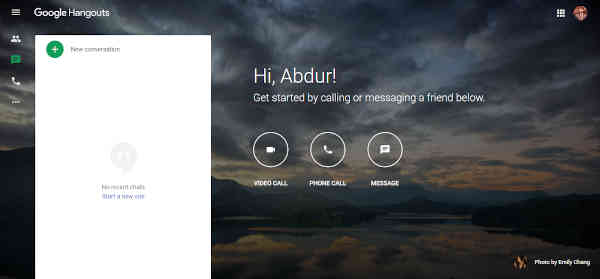
That’s all excellent, but Google Hangout’s biggest property is how convenient it is. It’s something that you return to when you’re already logged into your Google account. That’s not a beat against the service. Many people waste a lot of time on their Google accounts, and Hangouts is an excellent way to chat with others while you’re there.
The difficulty is that Google Hangouts doesn’t have much to give beyond convenience. Its main functions – video calls and text exchanges – are nothing more than “good.” Being ready to drop a Google Maps location in the center of a chat is great, but Hangouts is not a very pleasant messaging service to use.
If you’re bound to your Google account for any reason, Hangouts is a nice option. It’s just difficult to recommend past that.
8. Viber App
Pros:
+ Uses very fewer resources
+ Infinite free voice and video calls
+ “Damage Control” delete options
Cons:
– Dodgy call status
– Sometimes buckboard interface
– Doesn’t guarantee private connections
Viber was earlier one of the fastest-growing messenger services in society. At one time, their user base was nearing one billion users.
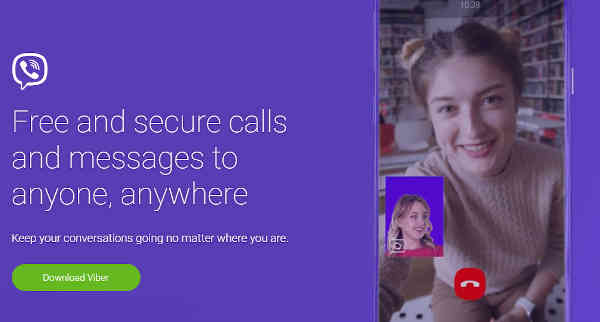
Part of the purpose Viber is so popular is that it doesn’t require you to create an account or formally know yourself. Alternatively, it uses your current phone number as the only means of identification. That anonymity is supported by features like the capability to delete sent messages even before they come.
The difficulty is that Viber doesn’t allow the same level of protection when you’re making calls. It doesn’t agree to provide encrypted communications, meaning that it is probably vulnerable to outside eyes.
Even if you’re not neurotic, you may be prevented by its unimpressive cal position and uninspiring interface options. Long story short, Viber has had difficulties ensuring that its features and feature have kept up with its increase.
9. Wechat App
Pros:
+ Very huge user base
+ Versatile “Moments” feature
+ Top-of-the-line separation options
Cons:
– Several of those users are in China
– Dull interface
– Interest in policies
WeChat is usually committed as the world’s fastest-growing messaging service. There are quite several numbers available that backup requires. Of course, the one number you want to know is 1.379 billion; the broken population of China.
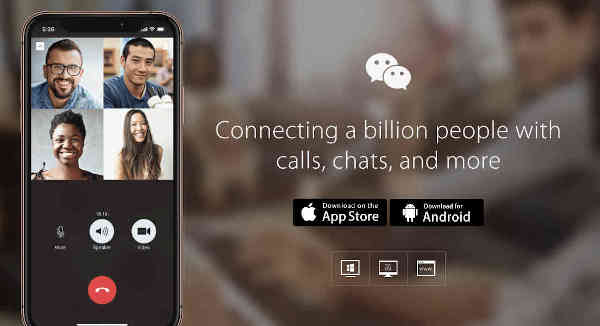
Yes, WeChat blew up in China, where it is gradually becoming the go-to messaging option. The specific number of Chinese WeChat users is unknown, but it’s supposed to be significant. WeChat’s popularity can be attached to its free call options and wide range of features.
The Moments feature, for instance, enables you to essentially build and share your newsfeed of individual and global information. That’s all fine and good, but the elephant in the room is WeChat’s relative lack of demand outside of China.
While WeChat is a fine little service, it doesn’t allow anything out of the normal. There’s also the dodgy matter of supposed government efforts to encrypt user data. WeChat allows some highly-rated protection against said interruptions, but the truth is that it’s difficult to justify downloading this app meanwhile you match it to its competition.

